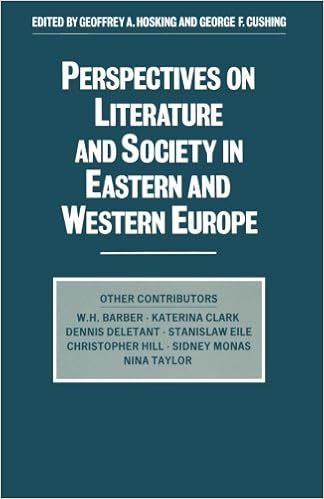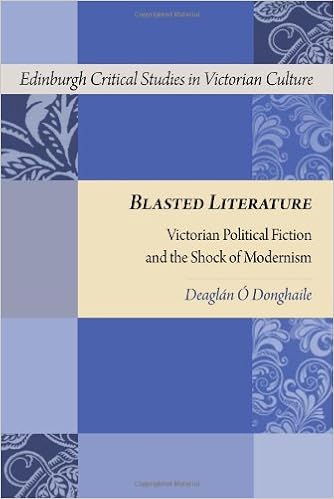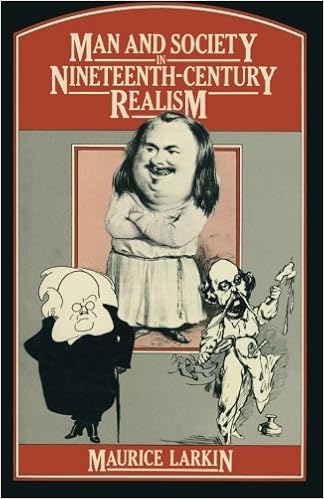
By George F Cushing, Geoffrey Alan Hosking
Read Online or Download Perspectives on Literature and Society in Eastern and Western Europe PDF
Similar literature books
Jody Gayle's Furniture and Draperies in the Era of Jane Austen: PDF
Jane Austen cleverly used furnishings and loved ones furniture in her novels to create funny, intimate, uncomfortable or even sexually charged events. In bankruptcy after bankruptcy, Austen applied furnishings to craft scenes and create drama through directing her characters round the room, to and from chairs, sofas, home windows, fireplaces or even the pianoforte.
Download PDF by Deaglán Ó Donghaile: Blasted Literature: Victorian Political Fiction and the
Dynamite novels meet intellectual modernism through the impression of terrorism. among 1880 and 1915, a number writers exploited terrorism's political shocks for his or her personal inventive ends. Drawing on late-Victorian 'dynamite novels' via authors together with Robert Louis Stevenson, Tom Greer and Robert Thynne, radical journals and papers, reminiscent of The Irish humans, The Torch, Anarchy and Freiheit, and modernist writing from H.
Read e-book online Naked Scientology : Ali's smile PDF
Nonfiction. bare SCIENTOLOGY comprises articles and letters by means of Burroughs critiquing Scientology, a faith with which he used to be concerned for it slow and towards which he continues a reserved interest. in keeping with Burroughs, a few of the ideas are hugely precious and warrant additional examine and experimentation, whereas however he's in flat war of words with the organizational coverage.
- Library of Little Masterpieces 35 Autobiography
- The Fuck Up
- The Joke
- Poetic Becomings: Studies in Contemporary French Literature (Modern French Identities)
- Wash
Additional resources for Perspectives on Literature and Society in Eastern and Western Europe
Sample text
There were thus contradictions in Milton's attitude towards the English Revolution, which are perhaps reflected in the tensions within his poetry. Milton's political career ran parallel with that of many of the radicals. Originally intended for the church, he early decided that he could not become a priest und er Laudianism, which he attacked in Lycidas. He later described hirnself as 'church-outed by the prelates', but his decision was, I think, voluntary. He decided to dedicate himselfto poetry.
These doctrines could not be openly expressed in Paradise Lost, Paradise Regained or Samsan Agonistes. Like Chekhov, Milton had to decide what he could get away with saying. But he knew that Paradise Lost was a great poem, which had tobe published. We must read it with these facts in mind. Take for instance the invocation to Book VII: I sing . . unchanged To hoarse or mute, though fallenon evil days, On evil days though fallen and evil tongues, In darkness, and with dangers compassed round, And solitude.
On the other hand, the theme involves consideration ofthe writer's view of the society to which he or she belongs: whether, to what degree, in what respects, that view is supportive or critical ofthat society, its structures, practices and beliefs. We must, I think, take a preliminary Iook at some of these general aspects of our theme in the context of the France of Voltaire's day before we can usefully consider Voltaire's own career and its significance. In the 17th century-the century in which Voltaire was born in 1694-French society regarded the imaginative writer as essentially an artisan, a craftsman whose social function was to provide, like the painter, the goldsmith and the architect, agreeable artefacts to enhance the pleasure ofliving for the court, the nobility and the more cultivated and prosperaus strata of the bourgeoisie.



